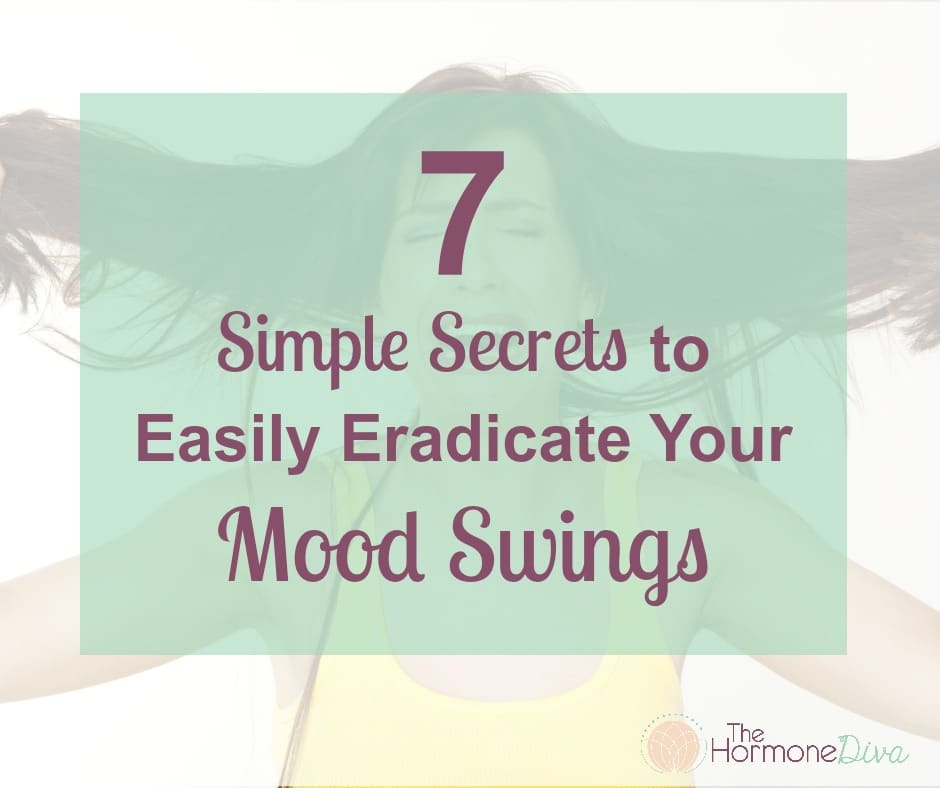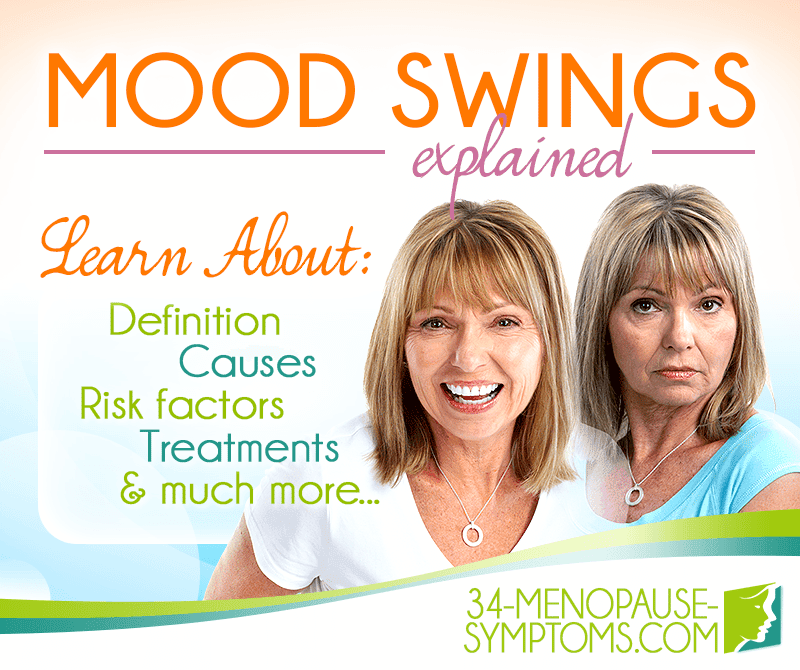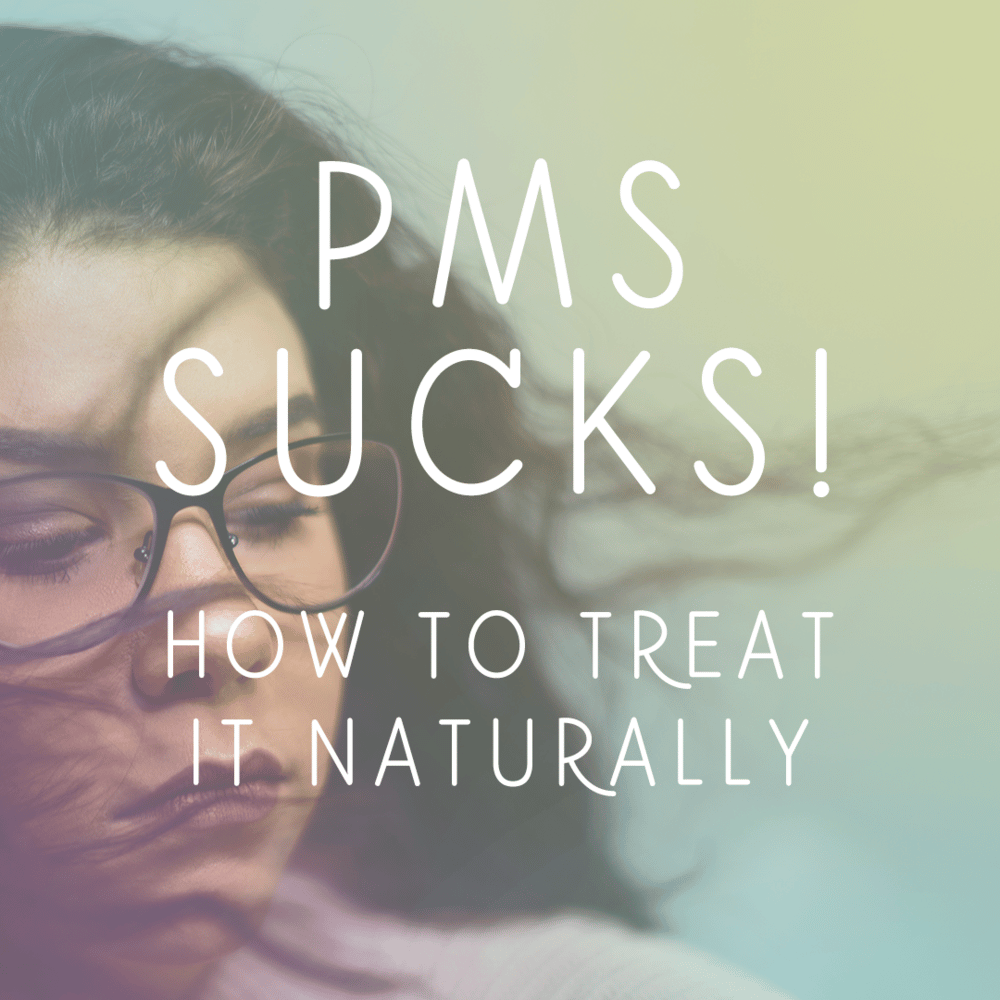Ways To Even Out Your Menopause Mood Swings
Have you been suffering mood swings recently, feeling tearful or anxious? Then your symptoms could be due to the menopause.
Many women associate this stage in life with hot flushes, night sweats and disturbed sleep but the menopause can also have a psychological impact.
Research has shown that women going through the menopause have a higher risk of changes in mood than non-menopausal women.
The symptoms, from feeling down to experiencing anxiety and tearfulness, can affect perimenopausal women in their 40s, before their periods have ceased completely, and continue after the menopause has happened, usually around age 51.
Dont Overdo The Exercise
It goes without saying exercise keeps you healthy. However, if you exercise too much it can affect your hormones, causing low progesterone . Each time you push your body to the limit, your heart rate increases and triggers a stress response. If youre healthy, this can be a positive thing but when exercise becomes excessive, your body loses the ability to recover and produce enough energy, and hormone imbalances can result. Short bursts of exercise are good but long, endurance exercising can be bad for hormones as it puts your body under chronic stress.
- The best type of exercise for maintaining healthy hormone levels is HIIT and resistance training.
- How much exercise is too much varies hugely from one person to the next, but signs that youre exercising too much can include: feeling overly tired, being unable to perform at the same level as before, feeling depressed, having trouble sleeping, and getting injuries. As with most things in life, exercise is about moderation.
Get More Sleep To Manage Hormonal Mood Swings
Sleep affects the levels of several hormones, including leptin and ghrelin, which control hunger pangs and fullness. Leptin gives your brain the message that youve eaten enough, but without enough sleep, your brain produces ghrelin, which stimulates appetite. A lack of sleep has also been linked to the hormones that affect your stress levels, your mood can take a tumble, and you can feel more stressed if youre not getting enough deep sleep and waking up feeling rested.
- Avoiding screen time during the hour before you go to bed can help you sleep better. This is because screens that emit blue light delay the release of melatonin.
- Making sure the room is very dark can aid a good sleep, as darkness prompts the pineal gland to start producing melatonin, while light causes that production to stop. Melatonin helps to regulate the circadian rhythm and can aid better sleep cycles.
- Its also a good idea to avoid sugar and caffeine in the evening as these can negatively impact sleep
Recommended Reading: How To Clear Cystic Hormonal Acne
Could Pms Really Be A Magnification Of An Existing Health Or Mental Health Condition
Brands that capitalize off of premenstrual syndrome spend a lot of money on sophisticated advertising that might lead people to believe certain symptoms can be attributed to PMS. Itâs important to know that some existing conditions can be amplified in the premenstrual phase . Blaming any uncomfortable symptoms that occur during the premenstrual phase on PMS could mask an underlying health issue. Anxiety and depression often get misdiagnosed as PMS . Other health conditions could also be misdiagnosed as PMS.
How To Help Anxiety And Mood Swings

The hormonal changes associated with perimenopause and menopause can cause mood swings and anxiety in some women. There are many options for managing these symptoms. From medication to lifestyle changes, you may find one or two options that work best for you. The best way to learn to manage your anxiety and mood swings during menopause is to consult your doctor for guidance. She can help you safely explore the options were going to outline.
Recommended Reading: Do Probiotics Help Hormonal Acne
How Hormones Influence Mood
Hormones are complex chemicals that are involved to some extent in just about every function and process within our bodies. Our overall health is influenced in a myriad of ways by our hormonal health, and mood regulation is a classic example.
Sometimes, it is a chronic problem or imbalance that leads to mood disturbances. Other times, the issue is more to do with too much fluctuation. If your hormones are a rollercoaster, your moods probably will be too!
One of the hormones with the most power over our moods is estrogen. Estrogen actually influences mood in a few different ways, but one of the most important ways is through its relationship with serotonin.
Serotonin is a neurotransmitter whose main responsibility is influencing mood. Heavily fluctuating levels of serotonin will inevitably show up as mood swings, and estrogen actually influences how much serotonin we produce.
Low levels of estrogen often lead to low or inconsistent levels of serotonin, which can be a major cause of mood swings. Low estrogen can also lead to symptoms like brain fog, difficulty sleeping, hot flashes, headaches, bone loss, and memory issues.
Estrogen also helps to protect the brain and nerves from damage, to control levels of other important mood-related neurotransmitters, including dopamine and norepinephrine, and to increase feel-good endorphins. For all of these reasons and beyond, its important to pay attention to estrogen levels!
Hormonal Contraceptives Are For Healthy People
Remember that oral contraceptives and hormonal birth control have all been designed with a healthy woman in mind. Studies also aim to eliminate anyone who has a diagnosis that could skew results.
So, if you’re a woman who already has a preexisting condition, like autoimmune disease, thyroid disease, an adrenal condition or a mood disorder, starting off with these hormones may just be a recipe for disaster in your body.
Sadly, many women and young girls are being put on these hormones to treat symptoms, such as acne, irregular periods, PCOS, or extremely painful periods. Hey, you name the period problem, and you’re going to get a prescription from your doctor for some hormonal suppression.
I take issue with using the pill to mask symptoms and telling a woman that this is the only way to fix her hormones.
They dont fix your hormones. And if youve had a suspicion this is true, but fear to return to nightmare periods then girl, I got you. You need to attend my free masterclass called The Pill Free Period.
And please ladies, this is in no way judgement if you use hormones to manage symptoms. I did it too. But I want you to know you have options.
You May Like: How To Manage Hormonal Imbalance
Depression Or Bipolar Disorder
Mood swings are also a common symptom of depression. Those dealing with depression may find themselves going from irritable to sad to angry in quick succession .
People with bipolar disorder also deal with some extreme mood swings. People with this mood disorder experience large shifts in their moods. Another type of bipolar disorder is cyclothymic disorder, which is defined by episodes of hypomania followed by depression.
If you suspect you may be dealing with a mental health issue like depression or bipolar disorder, its best to speak with a healthcare professional.
Schedule Some Daily Down Time
Even if you are the busiest person in the world with an endless to-do list, if youre going to make it through recovery in once piece then you absolutely need to begin scheduling time for rest and relaxation into your daily routine.
Stress hormones and tiredness are two of the biggest culprits when it comes to erratic mood swings, so try to block off at least 30 minutes of you time each day.
Read a book, go for a walk, meditate, take a long hot bubble bath do whatever you can to wind down and relax.
Read Also: What Is Hormone Therapy For Menopause
What Is The Difference Between Pms And Pmdd
For most women, PMS symptoms are mild and dont interrupt their day-to-day lives. On the other hand, PMDD is accompanied by symptoms that are intense enough to create disruptions to ones daily life.
A doctor will need to establish a pattern of symptoms to determine if PMDD is present. Other physical or psychiatric symptoms that can mimic its symptoms will also need to be ruled out.
Hormone Imbalance Could Be The Cause Of Feeling Low Or Irritable Learn How To Naturally Manage Your Hormonal Mood Swings With These Top Tips
Your day is going well, until suddenly you find yourself sad, angry or weepy for no good reason. Its as if your emotions are controlling you. So, what on earth is going on? If this sounds familiar, you might be surprised to discover your hormones are responsible. During perimenopause, mood swings or feeling grumpy all the time can be a sign of hormonal imbalance, according to cosmetic doctor and hormone expert, Dr Martin Kinsella,.
Mood swings can occur when serotonin levels change rapidly, either rising or falling, says Dr Kinsella. Oestrogen and progesterone control the levels of serotonin production. High levels of oestrogen can impact your mood. This can result in what is known as the rollercoaster of emotions that women can experience during both their menstruation cycle and when they reach menopause.
This happens because as you enter perimenopause, which is a natural part of ageing, the balance of your bodys sex hormones shifts. When your ovaries stop producing as much oestrogen and stop releasing an egg each month, then the menopause occurs. Although everyone is different, it usually occurs in the late 40s to 50s, however premature or early menopause can occur at any age, explains Dr Kinsella.
Read Also: How To Measure Testosterone Levels At Home
Why Can Birth Control Cause Mood Swings In Some People
The way birth control tanks your mood is multifactorial. And truly, we haven’t done enough studies to understand why one woman has issues, while another is just fine. At this current time, we can’t say that birth control causes mood swings, depression or anxiety based on the current research. However, we do know there is a correlation between starting birth control and then experiencing mood symptoms.
In my naturopathic medical practice, I consider the many factors at play on an individualized basis.
Here are just a few of the issues doctors should consider.
How Can My Doctor Help

If you are worried about your mood swings or they are affecting your work or personal relationships, it might be worth paying a visit to your doctor.
If hormones are to blame you may be offered a hormonal contraceptive in an attempt help to balance your hormones, although beware of any side effects.
If stress, anxiety or feelings of low mood are an issue, your doctor can explain some of the treatment options they have available such as anti-anxiety or anti-depressant medication.
Join to receive 7 days of tips and advice from Nutritionist Emma, covering everything you need to know to get your period symptoms under control.
Recommended Reading: How To Correct Hormonal Imbalance Naturally
What You Can Do To Boost Your Mood
The good news is that there many things you can do to combat the psychological effects of the menopause, from medical interventions or complementary therapies undertaken with the advice of a health professional, to simple changes to your lifestyle.
Here are 10 ways to help even out your menopause mood swings:
1. Keep A Diary
Keeping a symptom diary, recording your symptoms each day, will help health professionals to assess whether your low mood has a cyclical, hormonal basis or whether you may be suffering from depression which should be treated differently. Some women in their 40s are prescribed anti-depressants for low mood but these can have unpleasant side effects while hormone replacement therapy is a more effective and safer treatment for mood swings triggered by fluctuating hormones.
2. Take Some HRT
In the UK, HRT is recommended by NICE to treat menopause-related mood swings and research has shown it helps. One study, published earlier this year by US researchers, found women who took HRT for a year were less likely to develop symptoms of depression during the menopause. There are some risks associated with taking HRT but these are extremely small and the benefits outweigh the risks. The type and dose of HRT will depend on your individual symptoms and medical history with the advice of your doctor.
3. Try Testosterone
4. Eat Well
5. Cut Back On Alcohol
6. Exercise Regularly
7. Get More Sleep
8. Consider Complementary Therapies
9. Try Something New
10. Think Positive
Mood Swings Heres How Your Hormones Contribute And What To Do About It
Picture this: its a regular Tuesday, and youre at the grocery store picking up a few essentials for dinner. Youre walking along, finding everything you need, feeling perfectly content. And then you turn down the coffee and tea aisle, ready to pick up your final item, and someones cart is blocking your path. You become intensely irritated doesnt this person know that there are other people in the store?
All of a sudden, it seems like everything is either going wrong, or just bugging you. The person in front of you in line wont stop talking. You forgot the milk. You seem to be catching every red light on the way home. Most of all, you just feel blah.
If any of this sounds familiar, you are so far from being alone. Mood swings, especially during the time before your period or during perimenopause, are extremely common. So common, in fact, that the syndrome known as Premenstrual Syndrome has become a verb, and whenever one of my friends who is going through perimenopause starts to talk about something weird shes experienced with her moods, every other woman in the group nods along emphatically.
Read Also: Best Thing To Balance Hormones
What Are Mood Swings
Mood swings are significant fluctuations in mood that occur suddenly and fade quickly. But they can be intense enough to make you irritable, anxious, emotional, and want to start an argument.
These mood changes are not the same as those you experience due to stressful or upsetting situations .
Instead, mood swings seem to come out of nowhere and are unrelated to what’s happening in your day. You might often describe the experience as “having a bad mood for no reason.”
But theres always a reason for everything, including mood swings.
How Is Pmdd Managed Or Treated
Your healthcare provider may recommend one or more of these treatments to help manage PMDD:
- Antidepressants to help manage your brains serotonin levels.
- Dietary changes, such as cutting back on salty, fatty or sugary foods and caffeine.
- Over-the-counter pain medicines to ease cramps , headaches, breast tenderness and other physical symptoms.
- Regular exercise to improve mood.
- Stress management tools, such as deep breathing exercises and meditation.
Read Also: Where Can I Buy Natrol Melatonin
Menopause And Mood Swings: Is It Inevitable
Some research studies suggest that there is a link between menopause and mood swings. This could explain why many women experience varying mood patterns during menopause. These studies suggest that menopausal mood swings are due to hormonal changes.
During menopause, the levels of the reproductive hormones estrogen and progesterone decline, causing physical and psychological changes in the body.
Cut Back On Alcohol To Manage Hormonal Mood Swings
Alcohol interferes with your natural hormone balance by affecting blood sugar levels. This negatively impacts mood. Many people experience a mood dip the day after having too much alcohol to drink. Moderate your alcohol consumption to dodge hormonal low mood.
- Its recommended adults drink no more than 14 units of alcohol a week, spread across three days or more. Thats approximately six medium glasses of wine or six pints of beer.
- Swap your usual alcohol for one of the many alcohol-free beers, wines and spirits, or alternating them during a night out. This can help reduce your alcohol intake.
You May Like: How Does Paragard Work Without Hormones
How To Help Your Teen Control Mood Swings
JGI / Jamie Grill / Blend Images
Teens are new to the surge of emotions that comes with changing hormones during puberty. Dealing with the mood swings can be overwhelming, and some teens handle it better than others. As a parent, the challenge is knowing how you can help your teen control their emotions and teach them to work through the rollercoaster in a healthy way.
Luckily, adults can relate to these ups and downs. We’ve all been there and made it through one mood swing after another. Mood swings are a natural part of growing up and there are ways to help your teen work through them.
Mood Swings Around Certain Times Of The Month

In one study, researchers gave calcium supplements to women who had severe PMS mood swings. After two months, the women who received calcium supplements experienced a significant decrease in mood swings. Additional research has shown that women who take calcium experience less fatigue and depression related to menstrual cycles.
Calcium supplements may be recommended if a woman does not incorporate enough calcium-rich foods into a daily diet. Dairy products like milk, cheese, and yogurt are good sources of calcium. But there are many vegan options for calcium-rich foods, too, including leafy greens, tofu, and lentils.
Also Check: Hormone Medication After Breast Cancer
Be Her Exercise Partner
Many women find that one of the most effective means of managing the menopause is to stabilize the root cause: hormone imbalance. A simple way of going about this is to lead a healthy lifestyle. Exercise will provide not only short term stress relief but also reduce the risk of contracting some of the more serious conditions that can accompany menopause. However, it can sometimes be hard to stay motivated, help your mom along by becoming her running partner or joining an exercise class together.
You May Like: How Much Does Hormone Replacement Therapy Cost